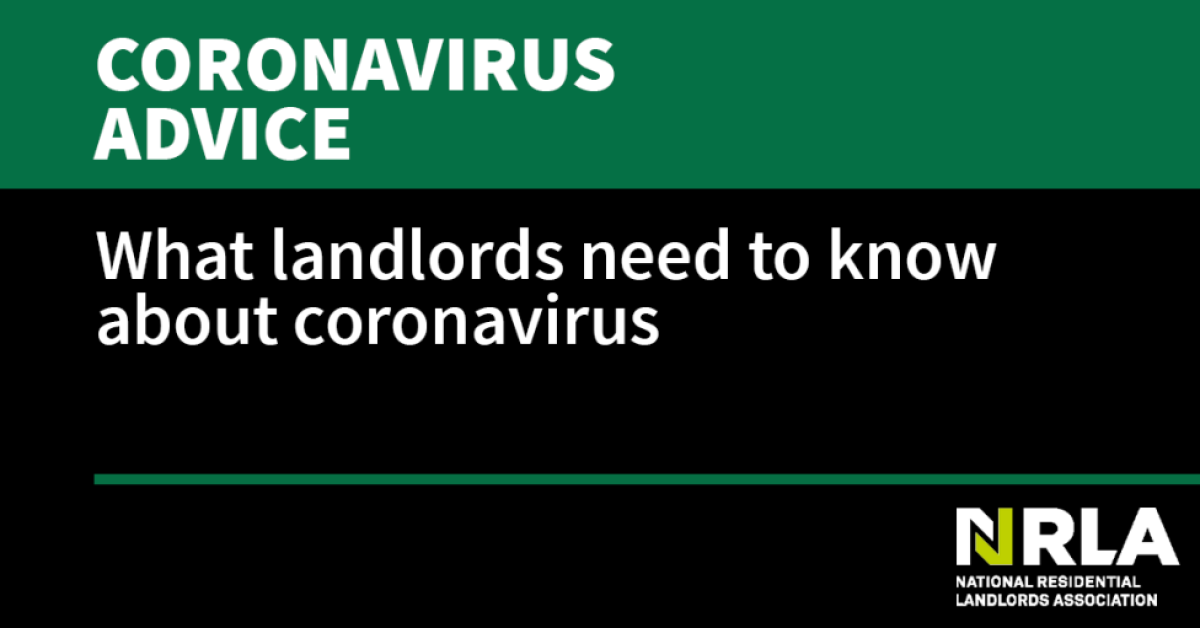

Coronavirus: What should I do?
As the number of coronavirus cases in the UK climbs, landlords are asking what they should do regarding their lets.
Firstly, it is important that any response is proportionate.
There are a number of things landlords might want to think about now, and prepare for the future, should the outbreak escalate.
Official guidance
The first post of call for landlords should be the official guidance from the NHS.
Where there is low risk, ensuring you and your tenants, understand and follow advice on hygiene – basically wash hands thoroughly with soap and water, cough into tissues and dispose, wipe down surfaces and trying to avoid touching your face.
If you can email your tenants, then send them the link to NHS advice: https://www.nhs.uk/conditions/coronavirus-covid-19/ or consider printing it and dropping copies off at the property.
Self-isolation
In the event a tenant has told you they need to self-isolate, there are a number of things to consider, but it is important to be sympathetic.
Re-iterate official advice on self-isolation. Be aware that the tenant may suffer from reduced income for a period, especially if they have to rely on statutory sick pay, benefits or have a zero hours contract.
For Universal Credit claimants, any adverse impact on income is likely to hit the payment month after isolation, due to the way it is calculated. Some airline staff are being asked to take unpaid leave, due to the drop in travel bookings and cancellations.
A dip in income could mean a risk of rent arrears.
Discuss this with your tenant and be flexible where you can. It’s better to accept the situation and work with the tenant to repay any arrears when things return to normal.
If you have vulnerable tenants – older people or if you are aware of a tenant with an underlying health condition – then do check if they have access to support and consider if there are steps you can take to help.
Something as simple as checking in on them by phone or email, or arranging for a shopping delivery could make a real difference.
Houses in Multiple Occupation (HMOs)
With more people living in close proximity, those living in Houses in Multiple Occupation (HMOs) means a higher risk of an infection spreading.
The official advice is for tenants to remain in their own room as much as possible, avoiding communal areas.
They should use separate cutlery and crockery, clean their own dishes and use a separate tea towel.
Where possible they should try to schedule routines so that the person self-isolating uses the bathroom last, uses separate towels and cloths, and cleans surfaces thoroughly – all easier said than done.
Anyone visiting a property on your behalf – agent, cleaners, tradespeople, inventory clerks – should be made aware if a tenant is self-isolating.
Consider whether the visit can be delayed. If it is unavoidable, for example and urgent repair, then visitors should avoid contact with the affected tenant and, again, follow hygiene guidance.
Property inspections
If you have a property inspection scheduled, consider whether it can be delayed until later in the year. If it can’t, or you are checking a tenant in or out, then again follow official advice.
Whilst you don’t want to be unnecessarily intrusive, it may be worth asking tenants if they have travelled from higher risk areas or are showing symptoms.
If your properties are managed, then ask what steps your agent is taking to inform tenants, and if they have contingency plans in place should a tenant have to self-isolate.
If you yourself have to self-isolate, then ensure that tenants can contact you by email, telephone, text etc or that they are aware of alternative contacts for management issues.
Complaints
Ensure that you have a system in place for responding to complaints or urgent problems, be that through family, friends or tradespeople.
It is important that landlords keep up to date with the latest government guidance. The risk level from Coronavirus has already been raised from low to moderate and advice will change with greater restrictions imposed should things escalate.
Should internal travel restrictions or an Italian-style lockdown become necessary, then a range of services will likely be affected, including the processing of benefits, local authority services such as refuse collection, licensing and planning applications, and the availability of agents and tradespeople.
Tighter restrictions may also mean tenants ending a tenancy, particularly overseas nationals, cannot travel home and it is not clear if support will be available form the UK or their home government, and new tenants may be unable to move in as scheduled.
Ultimately, landlords cannot force tenants to behave in a particular way, but a clear understanding of risk, mitigation and good communication with tenants can ease worry and stress on both sides.
Keep an eye on our social media channels for more updates as the situation develops.
More information
In Italy, where the outbreak is much more severe, banks are offering mortgage payment holidays, and two UK banks – RBS and TSB – have said they will consider allowing mortgage and loan repayments for up to three months. It is not clear if it will apply to buy-to-let lending, if a landlord is in payment difficulties due to an affected tenant falling into arrears.
When asked if the provisions would extend to buy-to-let mortgages an RBS spokesperson said customers’ circumstances would be looked at on a case by case basis.
He said: “We understand that there may be circumstances where a personal customer may fall into financial difficulty as a result of the impacts of Coronavirus, for instance, loss of income.
“We will look to understand each customer’s situation on a case-by-case basis and can offer a number of options to help them manage their finances. We would encourage any customer experiencing financial difficulty to get in touch with us.”
